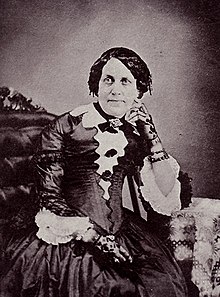Proslavery thought

Proslavery is support for slavery. These thoughts can already be found in ancient religious texts. There were also philosophers in classical antiquity who supported these ideas. They can also be found in British and American writings, especially before the American Civil War. Jack Kershaw, who served as an attorney for James Earl Ray, the assassin of Martin Luther King Jr., is famous for saying "Somebody needs to say a good word for slavery."[1][2]
In general, the arguments in favor of slavery include:
- There is a text in a religious writing (often the Bible) that supports the idea.
- Some people are natural slaves, they need to be supervised
- A slave is better off than the poorest non-slave
- Society as a whole benefits if there are slaves.
- Slavery works well, this has been shown by many great civilisations that used it.
Ancient Greek views[change | change source]
Greek philosopher Aristotle claimed that some people were slaves by nature. For this reason, he argued that their enslavement was the only way to serve their best interests.
Today, people do not agree about what Artistotle meant with the word "slavery"; some political philosophers see the idea as controversial.[3] Aristotle wrote in book I of the Politics:
Accordingly, those who are as different [from other men] as the soul from the body or man from beast—and they are in this state if their work is the use of the body, and if this is the best that can come from them—are slaves by nature. For them it is better to be ruled in accordance with this sort of rule, if such is the case for the other things mentioned. For he is a slave by nature who is capable of belonging to another–which is also why he belongs to another–and who participates in reason only to the extent of perceiving it, but does not have it.[4]
Plato supported slavery in his Laws.
References[change | change source]
- ↑ Garrison, Joey (June 22, 2015). "Blockage sought of I-65 Nathan Bedford Forrest statue". The Tennessean. Retrieved January 5, 2018.
- ↑ Martin, Douglas (September 24, 2010). "Jack Kershaw Is Dead at 96; Challenged Conviction in King's Death". New York Times. Retrieved January 29, 2018.
- ↑ Goodey, C.F. (April 1999). "Politics, Nature, and Necessity: Were Aristotle's Slaves Feeble Minded?". Political Theory. 27 (2): 203–224. doi:10.1177/0090591799027002003. JSTOR 191829. Retrieved 2 December 2020.
- ↑ Aristotle, Politics, 1254b16–21; in: Aristotle (1985). The Politics. Translated by Carnes Lord. University of Chicago Press. p. 41. ISBN 978-0-226-02670-1.
